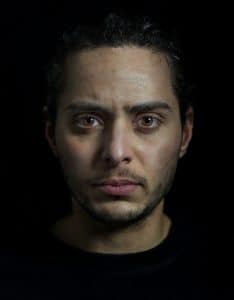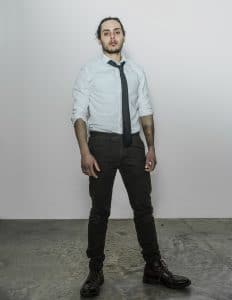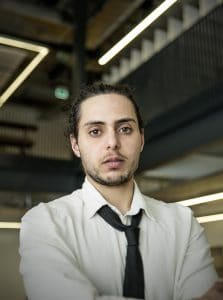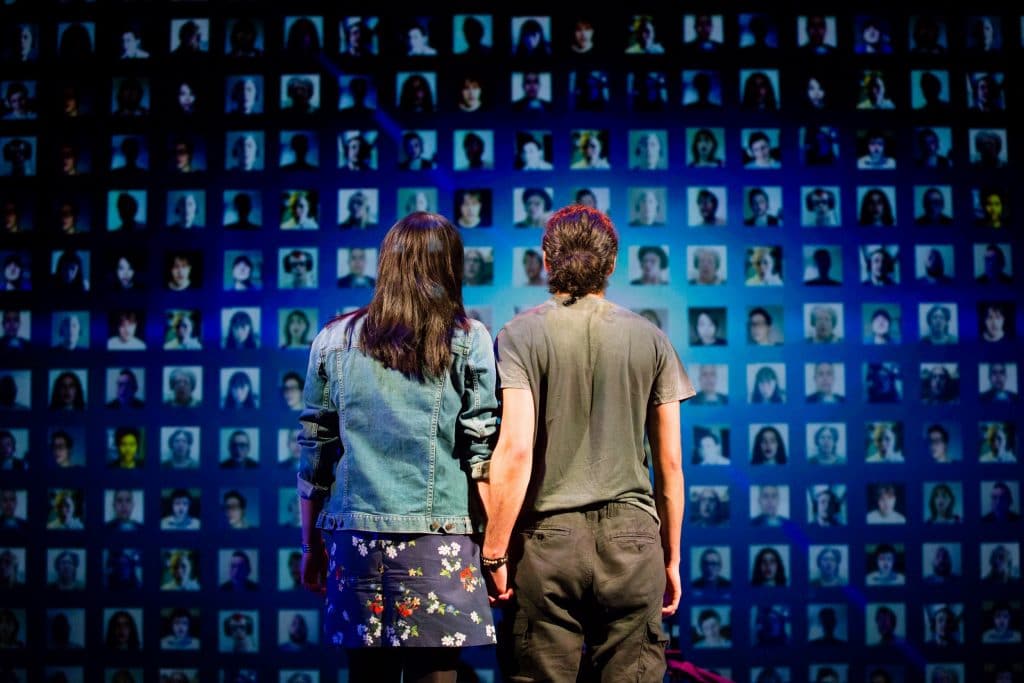Sam Bennett
 “You were born a girl, in the traditional sense, in Egypt,” I say to Adam Kashmiry, not quite sure of my terminology, “but you wanted to be a boy.” “Yes,” he says. Growing up in Egypt, his expressions of so-called masculinity were not accepted by others – the way he walked, talked and dressed.
“You were born a girl, in the traditional sense, in Egypt,” I say to Adam Kashmiry, not quite sure of my terminology, “but you wanted to be a boy.” “Yes,” he says. Growing up in Egypt, his expressions of so-called masculinity were not accepted by others – the way he walked, talked and dressed.
He couldn’t dress fully as a man like he can today, he explains (“shirts, the proper trousers, the proper shoes, stuff like that”) , but he’d go some way to doing so – donning chunky boots and metal music-themed boys’ t-shirts. People would ask him why he wore these tops, and he’d say it was because he liked metal, but it was chiefly because he wanted to dress like a male.
He left Egypt for the UK at the age of 19. Life didn’t get better straight away. He spent two years in a flat in Scotland, hearing three times that his application for asylum as a gender refugee had been refused. “It was a really dark time in my life. I didn’t know anyone in the UK at all, I had no friends. I didn’t have a computer, I didn’t have a good phone, I didn’t have money to go out – I didn’t have anything.” He was cooped up, for a long while without a television, before a small one with one channel was donated to him. He’d leave home for just a couple of hours each week, to collect his benefits (£36) which went towards food and cigarettes. He moved very little, growing weaker as his muscles forgot how to operate.

© Leroy Barrett
Doctors had apparently told him they couldn’t give him the hormone treatment he was after because he was an asylum seeker. “I decided to help myself,” he says, “because I realised that no one was able to help me.” Depressed to the point of being suicidal, he stopped spending money on food, saved up, and found a way to purchase testosterone online. “It was easy for me to buy testosterone, but it wasn’t easy for me to buy proper syringes.” He had to make do with ones not up to the job – “really small, really thin, really not suitable for testosterone”. Thankfully, he states, this self-medicating didn’t kill him, but it made him ever so sick. “I don’t know if it was because of the syringes or the actual medicine, but if I injected my leg, it would swell up to the size of a tennis ball.” Every week he would inject, leaving whichever area he’d jabbed in great pain and giving himself fever. But he couldn’t stop. The testosterone might have helped in getting him the refugee status he needed, it was a means of combatting his deep depression. “I chose the physical pain as opposed to the mental pain.” When he eventually got his refugee status, he was able to go to professionals. About five years ago, he began properly transitioning.
It was also when he got his refugee status that the Scottish Refugee Council recommended he take part in a show they were producing with Citizens Theatre. Originally he wasn’t interested, but then decided to attend, to “see what’s going on”. He really liked it, he tells me. And so his story was told – alongside others about asylum seekers, refugees and local Glaswegians – in a musical production that theatre director Cora Bissett managed to catch. Touched by his story, she approached him about doing another production. They had coffee together, and then a year and a half passed while Bissett sought funding for said
production. “I completely forgot it was happening,” Kashmiry admits. But then the director got back in touch, funding secured; the show simply known as ‘Adam’ was to go ahead. Kashmiry, however, didn’t decide he was going to appear in the show until six months before its 2017 Edinburgh Fringe run.

© Leroy Barrett
It is, he says, pretty much his story – there are bits and pieces that didn’t actually happen to him which have been added for the purpose of the play. When you’re performing it, I ask, do you ever forget it’s about you? The further into the process he’s got, I’m told, the more he’s treated Adam as a character. He’s had to separate himself from who he’s playing, he says, “to be a good performer”.
What’s next for him? “I don’t really know,” he answers, before mentioning the ‘Adam’ shows he’ll be doing this year and next. It might be a while before we see him acting in anything else though, he says. Other acting gigs require him to have not just passion, but qualifications too. Studying the craft would be tricky, he says, because it would clash with his performing ‘Adam’. There is another area of interest to him; he is also a qualified hypnotherapist, and thinking of starting up his own practice. “Acting and hypnotherapy: they’re truly the two things that I love doing. We’ll see how it works – life is mysterious.”
‘Adam’ tours to the Beacon Arts Centre, Greenock), Brighton International Festival and Dundee Rep Theatre from 4-26 May. Additional tour dates to be confirmed, please visit nationaltheatrescotland.com for full information.

Neshla Caplan and Adam Kashmiry in ‘Adam’ © Sally Jubb

